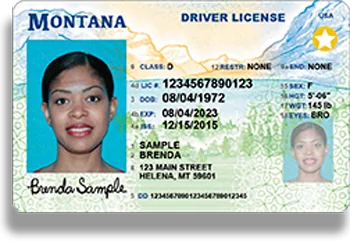Montana
ID Scanning Laws
In the state of Montana, the practice of scanning IDs is not explicitly regulated by law.
- Montana law does not specifically regulate the practice of scanning IDs.
- Businesses are likely allowed to scan IDs and retain the information obtained, subject to privacy laws.
- Cannabis regulations set a 180-day limit on the retention of PII obtained from an ID scan.
- Montana does not offer an affirmative defense for ID scanning.




Montana State Legislature
ID Scanning Resources
The Legal Framework
Montana ID Scanning Laws and Regulations
In the state of Montana, the practice of scanning IDs is not explicitly regulated by law. Businesses, including hotels, are generally permitted to scan IDs and retain the information obtained, subject to applicable privacy laws. However, specific regulations apply to the length of time that personally identifiable information (PII) obtained from an ID scan can be retained. This article provides a detailed examination of Montana’s ID scanning laws and regulations, with a particular focus on their application within the hotel industry.
Montana’s ID scanning laws and regulations are not explicitly defined, leaving businesses with some latitude in their practices. However, several relevant laws and bills provide guidance on specific scenarios, including the sale of age-restricted items and the handling of PII.
Montana Code 16-3-313 addresses the scanning of government or tribal-issued identification for the purpose of determining age for the sale of age-restricted items. According to this code, businesses:
- Can only use data or metadata from the scan to determine the person’s age.
- Cannot transfer or sell that data or metadata to another party.
- Must permanently delete any data or metadata from the scan within 180 days.
This law is particularly relevant to hotels that sell age-restricted items such as alcohol or tobacco products. It’s important to note that this law does not limit the collection and preservation of information required by federal law for the sale of ephedrine or pseudoephedrine.
Montana House Bill 293, which generally revises laws relating to alternative nicotine and vapor products, also has implications for businesses that scan IDs. The bill states that a retailer cannot sell alternative nicotine products or vapor products at retail unless in a place where alcoholic beverages are sold and consumed, and the machine is in a direct line-of-sight of the owner or an employee. Furthermore, a retailer cannot distribute any nicotine or vapor alternative to anyone under 18 years of age. If the retailer scans a tribal-issued ID card to validate age, the seller must handle the data from the scan in accordance with the law.
Montana House Bill 300, which missed the deadline for General Bill Transmittal, proposed similar regulations. It also included a repeal to the prohibition on a local ordinance prohibiting the sale of tobacco products.
Montana’s Carrying False Identification Law, 61-5-302, outlines the unlawful use of a license or identification card. Violations of this law, which include displaying a fictitious or altered ID or lending an ID to another person, are considered misdemeanors and typically result in fines ranging between $280 and $500.
Please note that this information is intended to provide a general overview and does not constitute legal advice. Always consult with a legal professional for advice specific to your situation
Montana Anti-Trafficking Network
Our Fight Against Human Trafficking



Knowledge Base
Frequently Asked Questions
Yes, a hotel in Montana can scan IDs. Montana law does not specifically regulate the practice of scanning IDs. However, businesses, including hotels, are generally allowed to scan IDs and retain the information obtained, subject to applicable privacy laws.
According to Montana Code 16-3-313, a business that scans a government or tribal-issued identification to determine the person's age for the sale of age-restricted items must permanently delete any data or metadata from the scan within 180 days.
Guest Ban ID scanning service has customizable data retention to autodelete metadata.
Under Montana's Carrying False Identification Law, 61-5-302, violations of this law, which include displaying a fictitious or altered ID or lending an ID to another person, are considered misdemeanors and typically result in fines ranging between $280 and $500.
In Montana, businesses that sell age-restricted items, such as alcohol or tobacco products, must adhere to specific regulations. For instance, Montana Code 16-3-313 allows businesses to scan a government or tribal-issued identification to determine the person's age. The data or metadata from the scan can only be used to determine the person's age and must be permanently deleted within 180 days.
Montana House Bill 293, which generally revises laws relating to alternative nicotine and vapor products, states that a retailer cannot sell these products at retail unless in a place where alcoholic beverages are sold and consumed, and the machine is in a direct line-of-sight of the owner or an employee. If the retailer scans a tribal-issued ID card to validate age, the seller must handle the data from the scan in accordance with the law.
Montana Code 16-3-313 has specific implications for businesses that sell age-restricted items. It states that businesses can only use data or metadata from the scan to determine the person's age, cannot transfer or sell that data or metadata to another party, and must permanently delete any data or metadata from the scan within 180 days.
